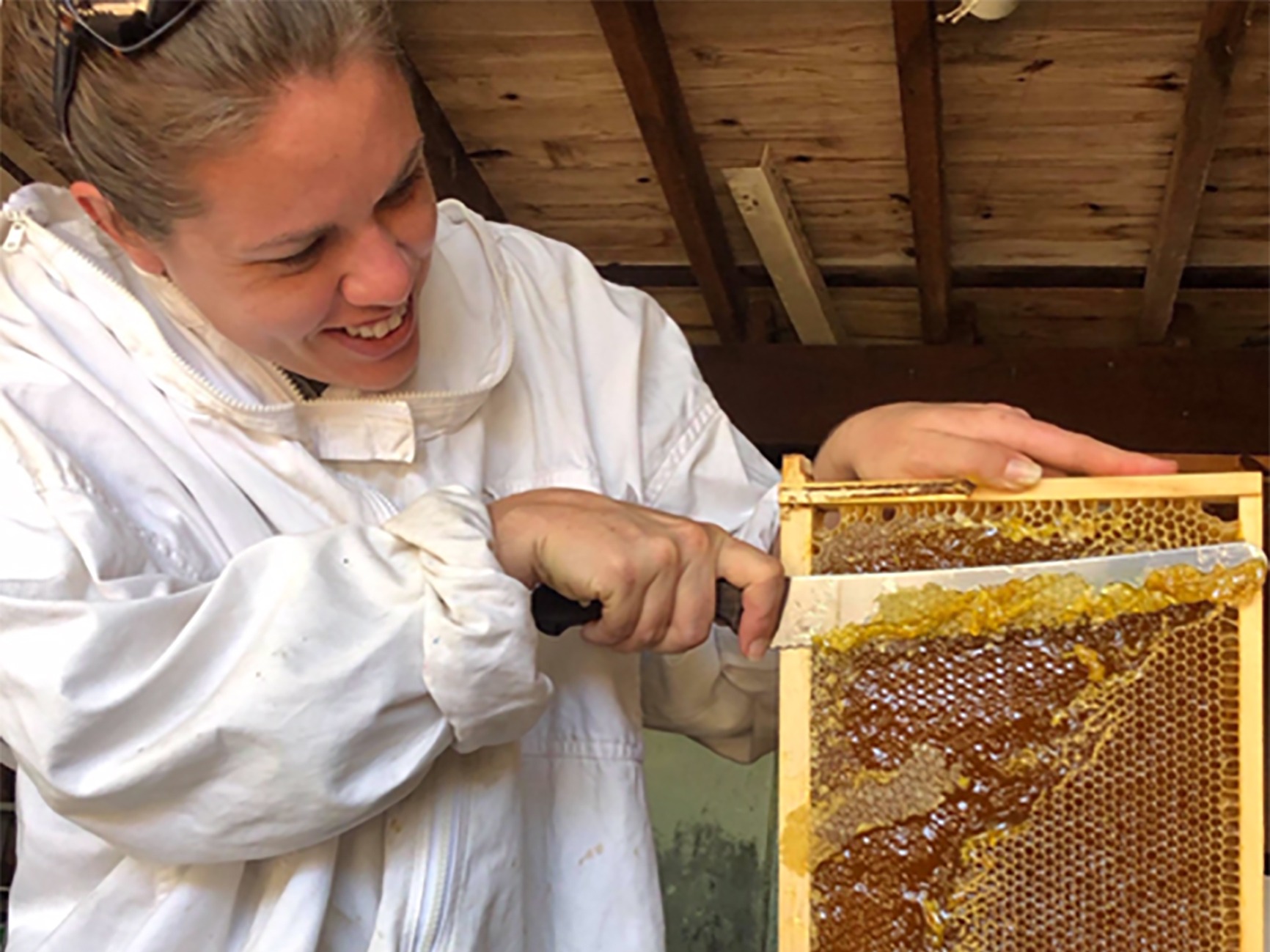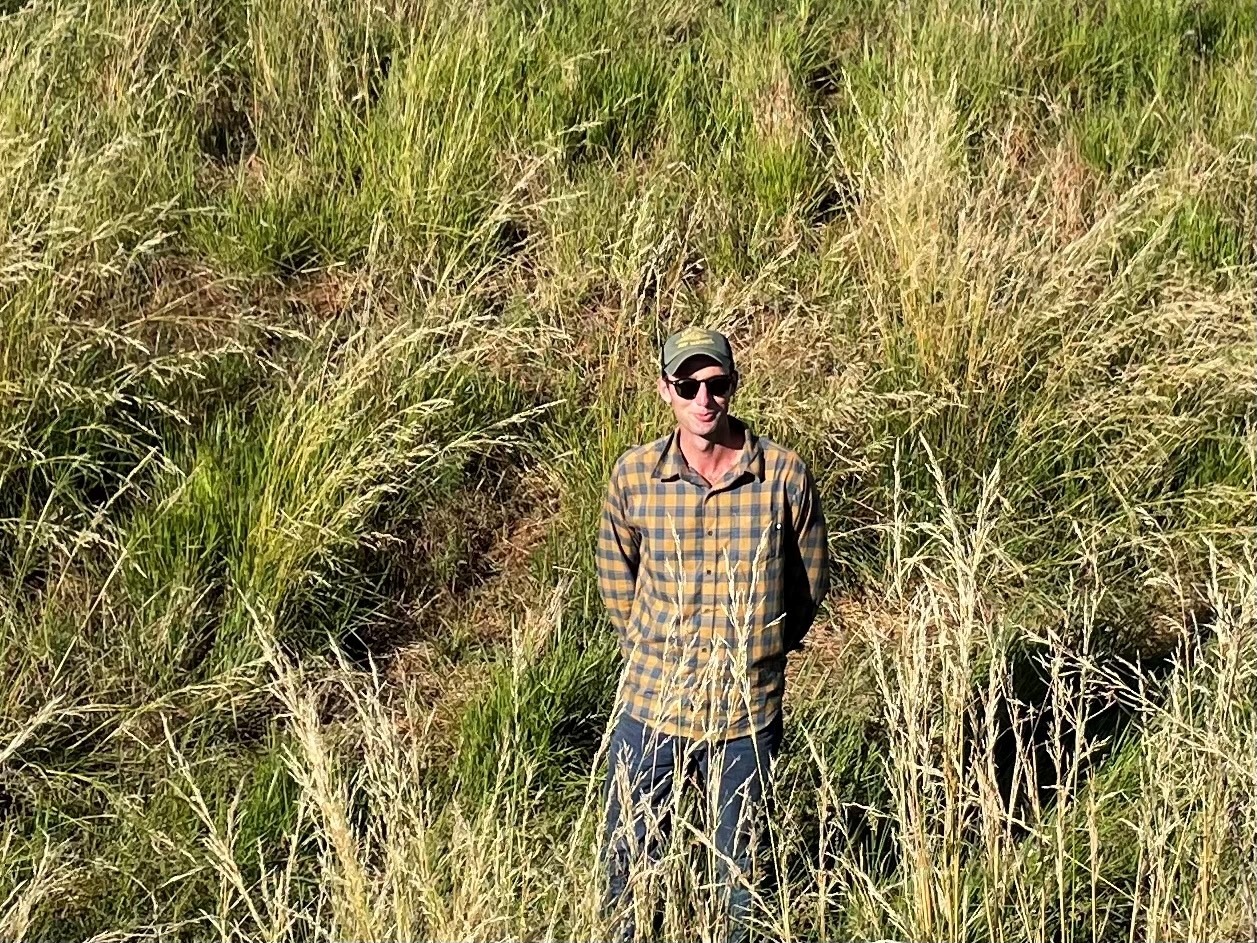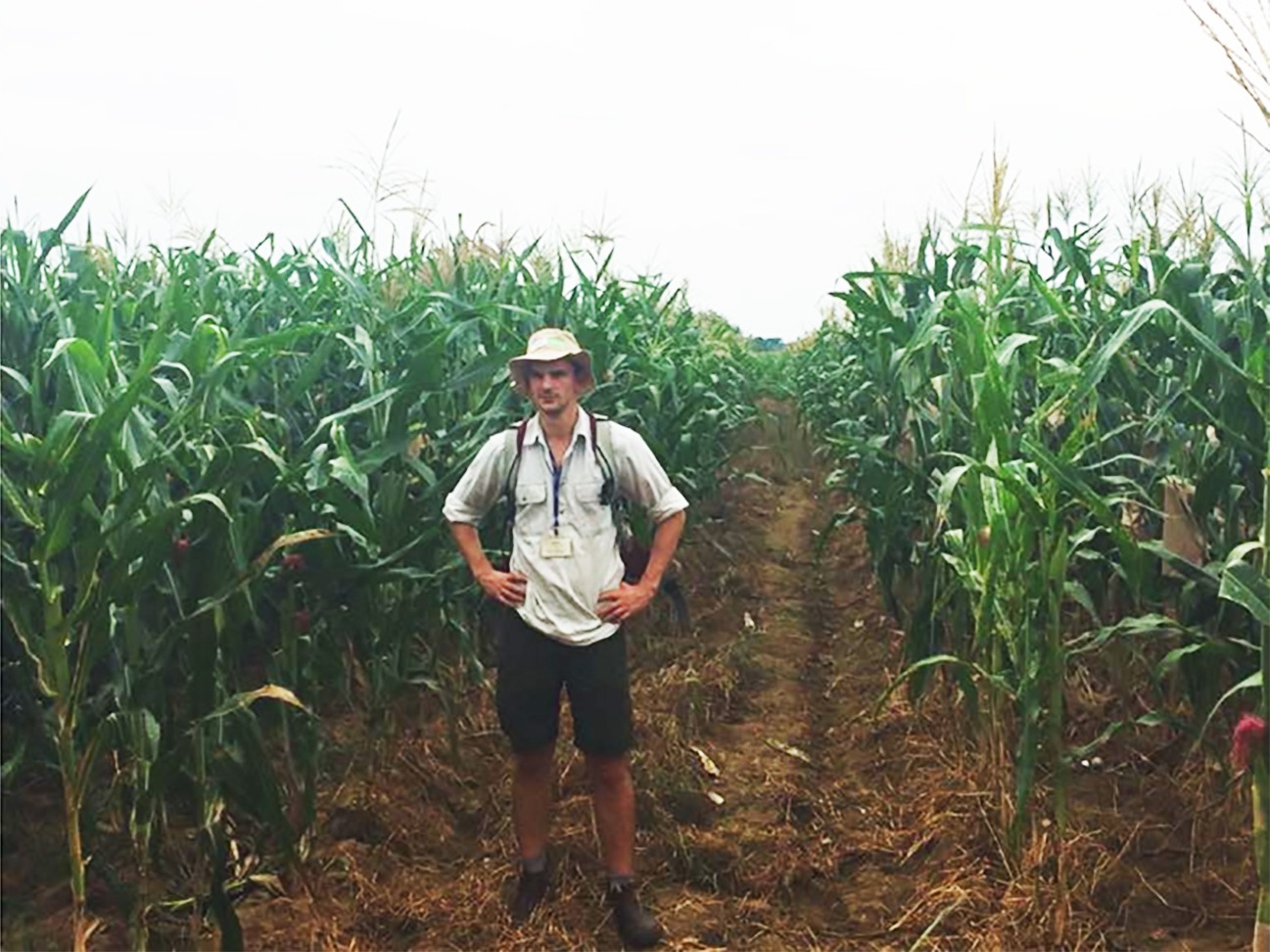

“How will you lead?” – Crawford Fund Conference Scholar Blog Competition
December 23, 2021
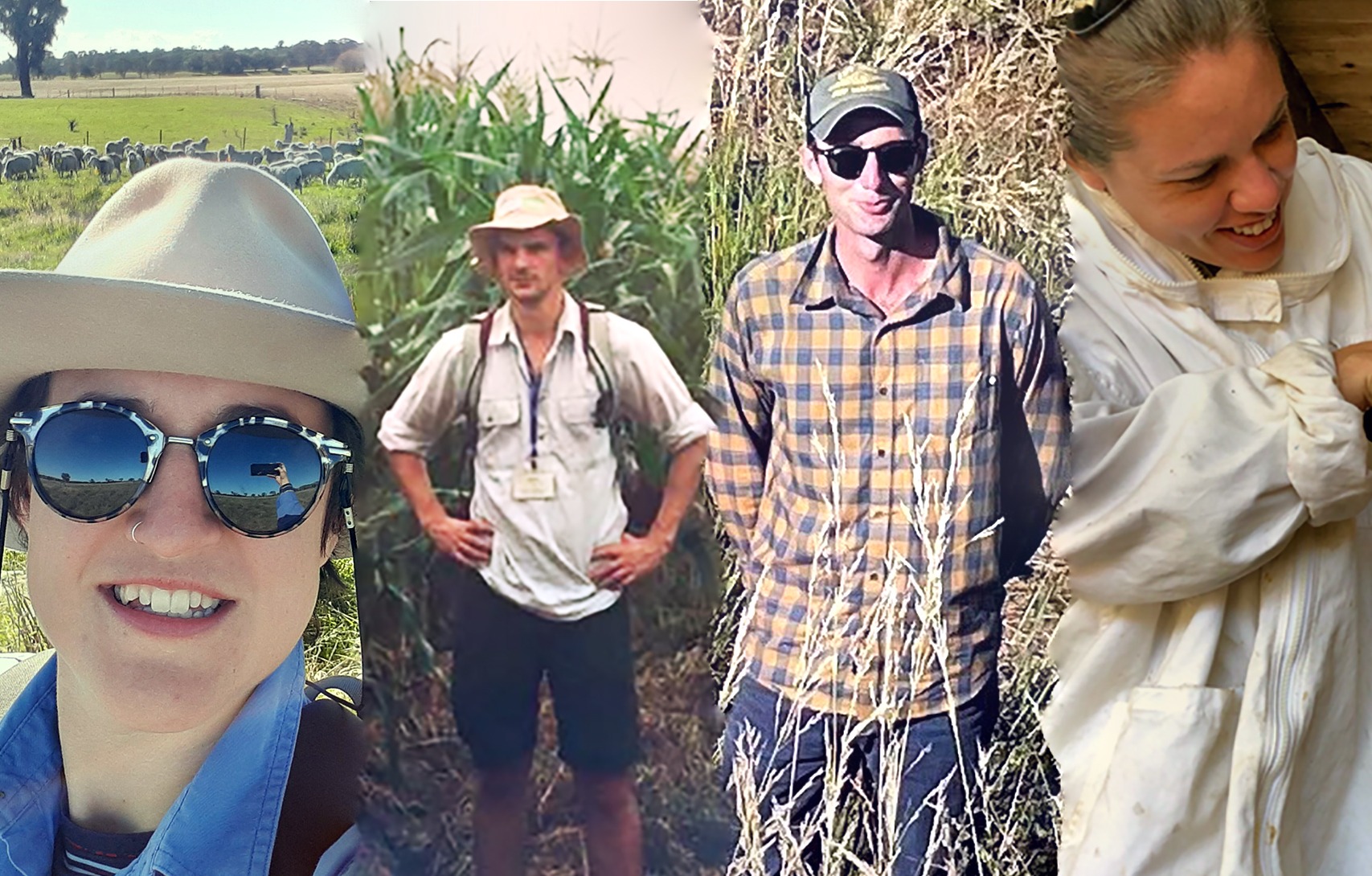
A select group of university students and early career researchers from all around Australia joined the 2021 Crawford Fund Annual Conference online, or in person if they lived in the ACT, as part of the Fund’s concerted efforts to encourage young Australians into international research, development and education careers for the benefit of both developing countries and Australia.
“Usually, these young people travel to Canberra, to learn from, be inspired by, and be paired with some of the leading experts and nicest people in the international agricultural development arena as part of the Crawford Fund Scholar Program, a unique learning, networking and mentoring opportunity,” said Cathy Reade, the Crawford Fund’s Director of Outreach and manager of our NextGen suite of programs.
“However, this year, with COVID keeping us on our toes, we were unable to provide the full scholar program experience, so we had to defer the opportunity to our successful scholarship recipients until 2022. Next year it will be the Crawford Fund’s 35th birthday, as well as ACIAR’s 40th birthday, so it promises to be worth waiting for!,” she said.
Those university students and early career researchers participating in the conference were offered an opportunity to enter a competition, writing a reflective blog about their conference experience, to win one of four copies of the recent book by Anika Molesworth, herself a conference scholar in 2015, and a member of the RAID Network and of our NSW Committee. Our Sunburnt Country is a book on climate change and the food system – and it explores both the challenges and the solutions. Anika did a PhD in agriculture and environmental management and has been involved in a number of research projects for international agricultural development. She’s conducted field and lab work in Laos and Cambodia in Southeast Asia, with projects focusing on integrated crop-livestock systems, climate awareness and adaption of small-holder farmers, and improving soil fertility through the cycling of organic residues for dry season cropping.
“Once again, the conference proved very motivational for our scholar attendees, with some inspiring and inspired reflections about their conference experiences,” said Cathy Reade.
We are proud to announce our four winners with a link to each of their entries:
- Anneliese Austin, Southern Cross University
“I’m not only inspired by all the speakers who presented at this year’s conference, but I’m filled with a sense of hope. If we can continue to have these critical conversations, learn from experienced peers, and collaborate with people from all walks of life, change is possible, transformation will be possible.”
- Amy Bates, Charles Sturt University
“A snapshot of who I was entering the conference: a second year PhD student exploring ewe nutrition on reproductive outcomes and digestive efficiency, driven by the want to improve production. In the few days since the conference, I can extend this identity to a highly motivated individual that will unapologetically pursue a career that strives to secure nutrition for the world.”
- Angus Dunne, Australian National University and The Mulloon Institute
“My key takeaway from Dr Kalibata’s address was a powerful call to action. ‘The solution to the problem starts with you, what are the communities you are a part of and what can you do to contribute’. The conference started in earnest on Tuesday and there was a very real demonstration of community observed by the passion and willingness to share knowledge and find solutions.”
- Michael Wellington, Australian National University
“‘Doing well by doing good’ is the well-known catchcry of the Crawford Fund, as Dr Brian Keating noted in his acceptance speech for the Crawford Fund Medal. Likely coined by the Fund’s founder Derek Tribe, the phrase distils how ‘doing good’ through internationally focused agricultural research and development translates into us ‘doing well’ here in Australia. Medal recipients Dr Brian Keating and Dr TJ Higgins’ reflections at the conference dinner demonstrated that this vision has assuredly come into fruition since the Fund’s inception.”
Blog by Anneliese Austin
“Food brings us together; it underpins many cultures and can provide important economic opportunities for all countries.” Dr Agnes Kalibata
To begin this blog, we must first start at the end.
“How will you lead?” This was one of the final questions asked to us by Dr Agnes Kalibata at the end of the Sir John Crawford memorial address on the opening night of the 2021 Crawford Fund conference. For me, this question resonates so strongly, challenging us to reflect upon the critical importance of the role we all play in supporting regenerative, equitable, resilient, and productive global food systems. This is a powerful question that needs to be asked at all levels, from the largest governments and corporations to communities and individuals. What are we all going to do to ensure a future for our planet and the wellbeing of all the people who call it home?
Throughout the 2021 Crawford Fund conference, we have been presented with risks and challenges and an endless array of potential solutions and opportunities. What stands out to me is that every one of us, in some way, can contribute our skills, knowledge and passion for driving a more sustainable, fair, and free future for all.
The importance of transforming food systems to support the livelihoods of marginalised people to reduce hunger, malnutrition, and poverty around the world has never been more paramount. As has been highlighted so many times throughout this conference, agriculture underpins the lives of so many people. Thus, we can reach so many of those who live in hunger, poverty, and insecurity through agriculture. I’m not only inspired by all the speakers who presented at this year’s conference, but I’m filled with a sense of hope. If we can continue to have these critical conversations, learn from experienced peers, and collaborate with people from all walks of life, change is possible, transformation will be possible.
I want to thank the Crawford Fund for the opportunity to attend the 2021 conference and for their continued commitment to support early career researchers and careers in agricultural research for development. The conference has not only been a source of inspiration but has encouraged me to reflect on so many vital issues impacting agricultural value chains globally.
So how will I lead? I will lead by collaborating with my global peers, building the capacity for others to be leaders in their communities. I will lead by continually learning and having a thirst for discovery, connection, and deep respect for those who have discovered before me. I will lead through equity and innovation, supporting women to achieve their goals and aspirations to live a healthy, happy, free life wherever they are from. I will lead every day by considering my impact on the world. I will reduce my waste, consume less, grow my food, protect the environment, and show respect to all people. Thank you to Dr Kalibata for asking this question of us all and the Crawford Fund for supporting student scholars to be a part of such meaningful conversations.
I think there is only one more question to ask.
How will you lead?
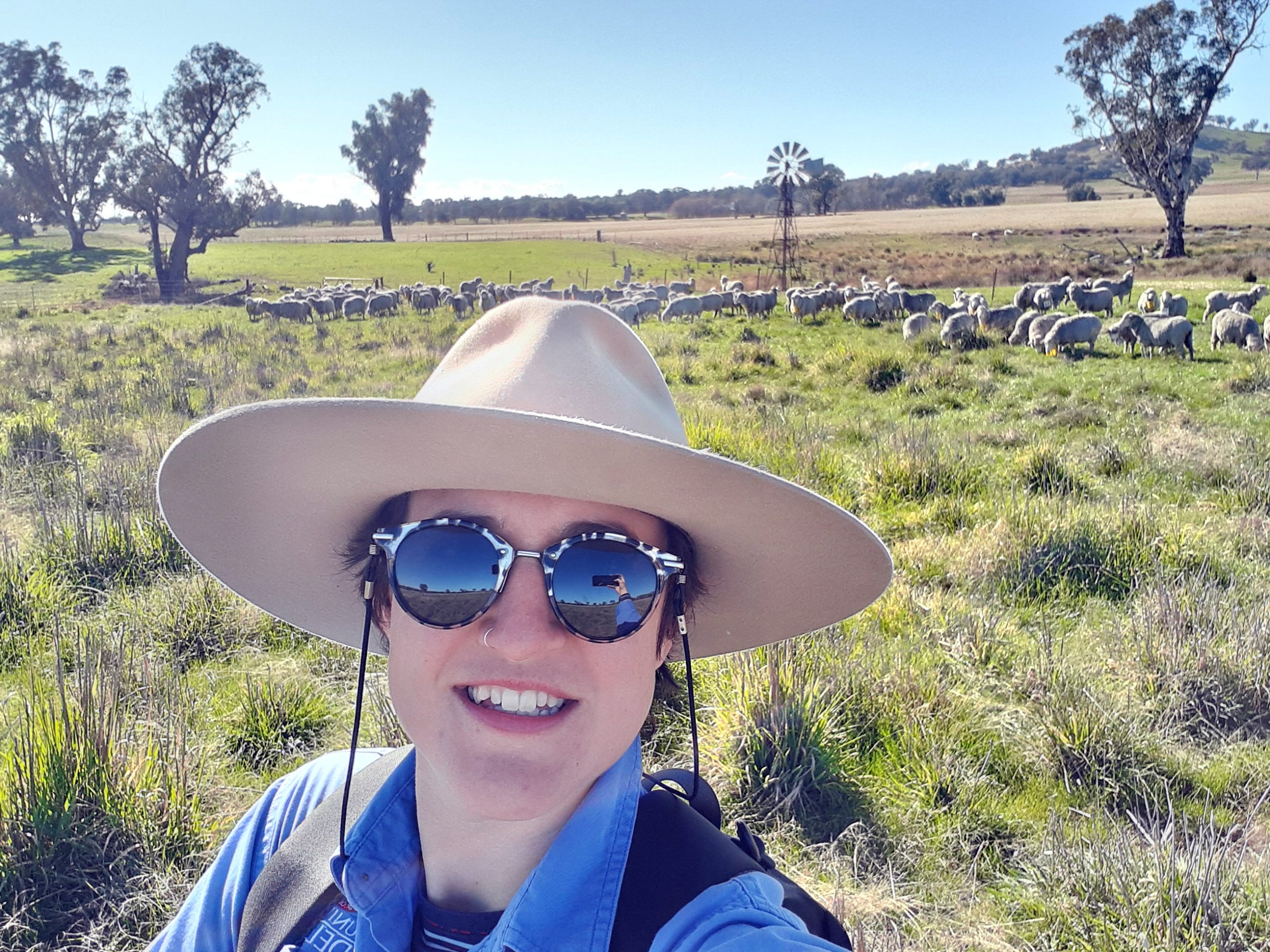
Blog by Amy Bates
Charles Sturt University
As we all begin to reflect on 2021 and the challenges and triumphs faced on a personal, community, national and global level, we have been gifted the annual Crawford Fund conference, entitled Food & Nutrition Security – The Biosecurity, Health, Trade Nexus. Congratulations must, first and foremost, be awarded to the team that brought the hybrid style conference into fruition, and what a triumph it was!
A snapshot of who I was entering the conference: a second year PhD student exploring ewe nutrition on reproductive outcomes and digestive efficiency, driven by the want to improve production. In the few days since the conference, I can extend this identity to a highly motivated individual that will unapologetically pursue a career that strives to secure nutrition for the world.
The conference theme was fantastically aligned with the current global pandemic and, as such, is difficult to not make comparisons. The memorial address by Dr Agnes Kalibata was superb and emphasised the importance of working together to move toward a sustainable world. Her passion and commitment for a food secure world was palpable. Dr Kalibata has achieved many accolades and the different hats she has worn and currently wears are inspiring as a female in the early stages of career research.
The hybrid format further echoed the take home messages of Professor Prabhu Pingali’s morning keynote of transboundary pest movement. As an island nation, I have always thought of Australia’s borders as impenetrable. It was made abundantly obvious that this shallow mind set will not serve well when considering food production across the globe, especially for poorer nations. This was a refreshing breath of fresh air and altered my understanding around the importance of biosecurity on a global scale, and crashed straight through my impenetrable Australian borders.
Professor Pingali’s explanation of system resilience, dominated by those working within the system, rather than type of production resonated with me. This made the ‘one health’ approach to policy recommended by Pingali a kind and gentle introduction to an aspect I have not paid a lot of attention or explored. The morning keynote left me feeling positively vulnerable, but for all the right reasons. My understanding of global food production had been challenged and how I explore and consider these challenges in the future will be different. This left me feeling both lighter, knowing I have a renewed perspective of the challenges to securing the worlds food production, but also heavy with the weight of these challenges I was previously ignorant of.
As the conference progressed, the discussion around silos kept coming forward. How can we break down our structured silo walls for greater collaboration? What are the challenges of this? Possibly the most important question of all, why had no one made a pun about silos and silos?! Throughout the conference I kept thinking that this silo concept must surely be outdated. But as I write this, being a very open, accepting person, I am only now understanding that my own thoughts are, at times, very ‘silo-esque’.
The irony is that forums such as this conference allow us to break down our barriers, barriers we may not have realised are built. It allows us to have transboundary conversations, for information to flow freely. The triumph of this conference is the reach, the sharing of information and the persuasion to keep challenging ideals and policy internationally. It would be easy to feel poignant after hearing the major threats, and it would be a disservice to not give Fall army worm a personal shout out after the number of mentions this pesky insect received… But, the passion and dedication on display from those presenting and those receiving recognition at the conference was more powerful. And this is how I will remember the 2021 Crawford Fund conference, a powerful display of research and researchers that are making a difference. This is what I want to be a part of.
Blog by Angus Dunne
The Australian National University & The Mulloon Institute
There was no doubt in my mind of the adaptability and commitment of the Crawford team after persevering to host the 2021 conference and provide opportunities for young researchers through the scholar program. The program offered the opportunity to network, learn and encounter new perspectives in the areas of food and nutrition security.
In personal reflection, there was a slight trepidation after finding myself at the NSW committee’s table for the conference dinner. This trepidation was not needed as I was shown a warm welcome and invited into the passionate conversation that followed the keynote address from Dr. Agnes Kalibata. My key takeaway from Dr. Kalibata’s address was a powerful call to action “The solution to the problem starts with you, what are the communities you are a part of and what can you do to contribute”.
The conference started in earnest on Tuesday and there was a very real demonstration of community observed by the passion and willingness to share knowledge and find solutions. A presentation by Professor Prabhu Pingali linked the relationship between food systems evolution and pests. Providing a novel way to view the dynamic and shifting nature of humanity’s approach to growing food. A key insight from Professor Pingali was the economic impact of transboundary pests, equating to $220 billion per year, citing the World Economic Forum. The session ended by highlighting the need for a prevention approach compared to a control paradigm; listing opportunities to invest in societal and value chains to increase resilience.
The resilience emerging in the industry to detect pests and biosecurity threats was showcased in the second session. Dr. Rob Horsch presented nine innovative websites from a global yield gap analysis to an interactive story map for the BGRI (Borlaug global rust initiative). Professor Pablo Zarco-Tejada presented the use of hyperspectral imaging to detect infections within vegetation before the symptoms can be observed on the ground. Dr. Stacey Lynch shared the LAMP technology (Loop-mediated isothermal amplification), an adaptable and quick way to detect pathogens by identifying their genomes. Dr Andrew Barnes presented a traveling laboratory in the form of a backpack. The backpack is a simple and cost-effective field test for fish pathogens with a reference database.
Throughout the day were valuable breaks for some good food and learning from all the knowledge in the room. I was lucky that Dr. Sasha Courville shared some of her experiences working with natural capital markets and the three theatres of Philanthropy, Corporate Social Responsibility, and shared values. Largely this conversation had stemmed from Rob Kaan’s presentation on the role of the private sector in food and nutrition security. There were a few key takeaways from this session: the need to focus on people and their talents; the tendencies of the younger generation to leave companies who do not do what they say; and align with the individuals’ values. Trust was a keystone to this conversation and raised a poignant question from the audience of whether we are trusting each other or requiring verification of trust.
With a full stomach and a mind overflowing with ideas, holding the attention of the audience following lunch is no easy task. Professor Andrew Robinson achieved this feat with ease, inviting the audience to view biosecurity as a responsibility of all people. It is in fact a global game of hockey, where no one is left out and everything is to gain. This message was echoed by the following speakers, each of which worked with communities to achieve outcomes in the biosecurity race with bananas, African swine fever, and fall armyworm.
The final session of the day opened with Nicola Hinders impressive ability to distil the complex world of trade negotiations into a relatable experience. A key take-home was the analogy describing the three sisters: food standards, animal health, and plant protection. Particularly in this final session and throughout the conference was a key theme of One Health. A new term for me, though one I would largely associate with holism; one health was used to describe approaches that incorporate, people, animals, and the environment from local to global scales. Importantly this approach facilitates the engagement from transdisciplinary fields to common problems.
As a young student, a few key take homes or perhaps the reinforcement of ideas stood out from the conference:
- People are at the heart of the issues and the solutions
- Holistic, (one health) approaches are required for an adaptable future
- There is an immense wealth of knowledge and experience in the Crawford community, transferring this knowledge to the younger generations Is Integral
- Governance systems have a big role to play in facilitating innovation and collaboration.
Blog by Michael Wellington
Australian National University
‘Doing well by doing good’ is the well-known catchcry of the Crawford Fund, as Dr Brian Keating noted in his acceptance speech for the Crawford Fund Medal. Likely coined by the Fund’s founder Derek Tribe, the phrase distils how ‘doing good’ through internationally focused agricultural research and development translates into us ‘doing well’ here in Australia.
Medal recipients Dr Brian Keating and Dr TJ Higgins’ reflections at the conference dinner demonstrated that this vision has assuredly come into fruition since the Fund’s inception. This was reaffirmed by my dinner conversation with two former heads of Australian State Departments of Agriculture who reminisced about the great leaps forward they contributed to over their careers: genetic modification and trade liberalisation among several others.
However, the celebration of achievements of the past had me wondering, as Dr Agnes Kalibata pondered in her Sir John Crawford Memorial Address, ‘what next?’. What are the next great advancements in international agricultural research and development likely to be? What research should we be doing to achieve them, and what role can my contemporaries and I play?
I needn’t have wondered long, because the next day provided numerous presentations and interactions relevant to my PhD work on irrigated agriculture in southern Africa. I previously had some doubts about Australia’s interest in African development, as DFAT’s own ‘strategy for Australia’s engagement with Africa’ notes that ‘Australian governments have not allocated a strong strategic priority to the continent’. It then goes on to describe a renewed commitment to partnership towards development. The African theme woven through the Conference assured me that this renewed commitment is genuine.
Our keynote speaker, Dr Agnes Kalibata, the UN Secretary-General’s Special Envoy to the 2021 Food Systems Summit, spoke of past frustrations towards Food Systems Summits from within Africa. She described numerous ways countries such as Australia could better engage with African nations, such as the ongoing transition from ‘siloed’ to ‘systems’ research and development. The recognition of Dr Brian Keating’s farming systems research and Dr TJ Higgins’ genetic advancement work; both focused on Africa, demonstrated past successes. However, as Professor Prabhu Pingali noted, sub-Saharan Africa remains a distinct outlier in global agricultural productivity trends, and social and economic development has correspondingly lagged.
My interactions with DFAT and other Australian government officials who were genuinely interested in my work reassured me of their commitment to agricultural research and development in Africa. Their enthusiasm for further engagement with their African counterparts on my research work was motivating for me, and I look forward to resuming these conversations in the New Year.
More broadly, the collection of government officials and scientists present at the Conference provoked some reflections on the role of science in international development. Chair John Anderson’s rhetoric on ‘calm and measured’ approaches to science as opposed to ‘catastrophising’ could be interpreted as resistance towards populist alarmism. Though his overarching message mirrored the argument made by Derek Tribe in ‘Feeding and Greening the World’; that dispassionate and conscientious science has thus far relieved us from a Malthusian trap, and we should trust that it will continue to do so.
Several inspiring scientists who presented at the Conference were clearly following the ‘dispassionate, calm, and measured’ dictum, either deliberately or otherwise. For example, Dr Jay Anderson’s work on banana leaf diseases in Lao PDR, notably undertaken on her annual leave, showed how conscientious Australian scientists can integrate technical research with social development. Dr Anderson’s plant pathology expertise has enhanced our understanding of banana leaf disease in south-east Asia from a purely scientific perspective. Though more importantly, her involvement in capacity building within Lao PDR has allowed local scientists to better manage outbreaks and contribute to international literature on banana leaf diseases.
Following this theme was Dr Irene Kernot’s presentation on management of banana Panama Disease in my home state of Queensland. The importance of Dr Kernot’s appreciation of issues beyond plant pathogen control, such as the social constraints faced by farmers when complying with biosecurity protocols, was critical to successful management of the disease. It was also evident that Dr Kernot had gathered substantial information and experience from Australia’s investments in international research on Panama Disease which she brought to bear once the disease inevitably reached Australia.
This grounding in biophysical sciences, appreciation of overarching social issues, and engagement with international research and literature is something young scientists like me should aspire to and encapsulates Dr Kalibata’s call for inter-disciplinary research.
Finally, the research investment in international horticulture which eventually brought benefits to Queensland’s banana industry epitomises the purpose of the Crawford Fund: ‘doing well by doing good’.
